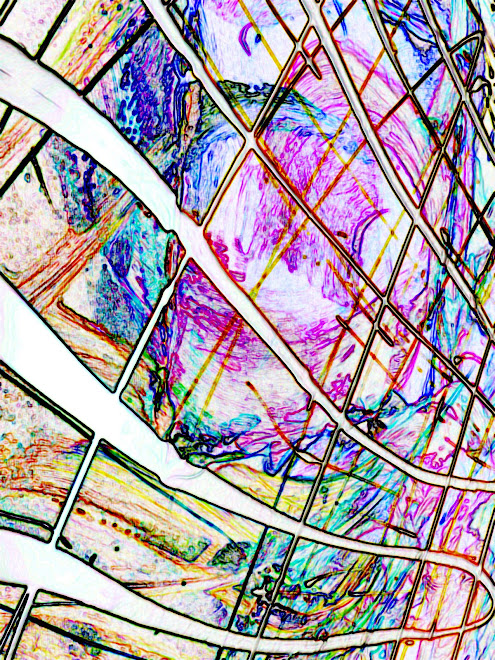Truth.
What is it? How do you define it? Does it even exist in the first place?
I believe truth is whatever you want it to be. It is what you make of it, as simple as what you yourself believe to be true. The real challenges lies in figuring out what we believe in. This is what I see as the outstanding benefit of citizen journalism.
Citizen journalism is not a new phenomenon. Predating even the photocopier and the printing press, it has risen in profile over the last decade thanks to new and emerging technologies, and more specifically; the internet [Bruns 2008]. Citizen journalists finally have a medium where there is an open inflow and outflow of information in which they can freely engage as produsers. The impartiality, neutrality, and non-discriminatory nature of the internet has also reinstated the democracy of media and encouraged us to shake free of traditional closed news processes [Jenkins 2008; Bruns 2008].
Citizen journalists are defined as average, ordinary people, without professional journalistic training, who are using new media technologies as tools to create and distribute material and content that is often alternative to main stream media representations [Glaser 2006; Bruns 2008]. The need for space to host and promote the prodused material of citizen journalists has pushed the global development of independent media centres and popularity of sites like Slashdot, PlasticsNews, Current_TV, OhmyNews, and even YouTube [Bruns 2008]. Much to the despair of professional journalists and traditional news producers [see Farmer 2006], this is clear evidence that humanity is craving a greater level of diversity and independence than media gateways are providing.
Bruns [2005; 2008] calls citizen journalists “gatewatchers”; describing the behaviour of citizen journalists as monitoring the output “gateways” of news publications, media outlets, and other information sources (including government and NGOs). It is from this watching that Bruns [2005; 2008] suggests information is drawn with the intention of re-evaluating, reinterpreting and/or re-contextualising it to produce new media and content that is alternative or corrective to the mainstream. However I believe many people engaging in citizen journalism today are surpassing their roles as gatewatchers, instead becoming gatekeepers.
Citizen journalists, or more specifically investigative journalists, are actively seeking new information, information not made available through traditional media gateways. Pursuits like that of Peter Joseph (see Zeitgeist) or Jeremy Scahill (see the shadow of citizen journalism) are opening new gateways to information otherwise kept under lock and key. The internet facilitates the open publishing of this information, allowing it to be communally evaluated, responded to, and built on in a palimpsestic process [Bruns 2008].
The best part about all of this? Anyone can pursue their own zeitgeist, with the knowledge that they will have the means of legitimately reporting their findings as a citizen journalist in a context in which they can be heard [Katz 1997; Bowman and Willis 2003]. We are in an incredibly privileged position to take charge of our own lives, and discuss and reflect on what is happening around us. We have the means to search for new information, and open new gateways whenever necessary.
We have a right to our opinion, and we have the right to be informed. We also have the right to choose. The right to choose between what we are told is true, and what we actually believe to be true. We hold the keys to make this choice. We are the gatekeepers.
REFERENCES
Bowman, S. and C. Willis. 2003. We Media: How Audiences are Shaping the Future of News and Information. In American Press Institute: The Media Centre, ed. J. D. Lasica. http://www.hypergene.net/wemedia/weblog.php (accessed May 13, 2008).
Bruns, A. 2005. Chapter Two: Gatewatching. In Gatewatching: Collaborative Online News Production, A. Bruns, 11-30.
Bruns, A. 2008. News Blogs and Citizen Journalism: Perpetual Collaboration in Evaluating the News. In Blogs, Wikipedia, Second Life, and Beyond: From Production to Produsage, A. Bruns, 69-100.
Farmer, J. 2006. Citizen Journalism Sucks. In The Age. http://blogs.theage.com.au/media/archives/2006/10/citizen_journal.html (accessed May 11, 2008).
Flew, T. 2005. New Media: An Introduction.
Glaser, M. 2006. Digging Deeper: Your Guide to Citizen Journalism. In PBS: Media Shift, M. Glaser. http://www.pbs.org/mediashift/2006/09/digging_deeperyour_guide_to_ci.html (accessed May 11, 2008).
Katz, J. 1997. Birth of a Digital Nation. In Wired, Iss. 5.04. http://www.wired.com/wired/archive/5.04/netizen.html (accessed May 11, 2008).
Jenkins, H. 2007. Videoblogging, Citizen Journalism, and Credibility. In The Official Weblog of Henry Jenkins, H. Jenkins. http://henryjenkins.org/2007/03/videoblogging.html (accessed May 13, 2008).
Jenkins, H. 2008. From Production to Produsage: Interview with Axel Bruns. In The Official Weblog of Henry Jenkins, H. Jenkins. http://henryjenkins.org/ (accessed May 13, 2008).




No comments:
Post a Comment